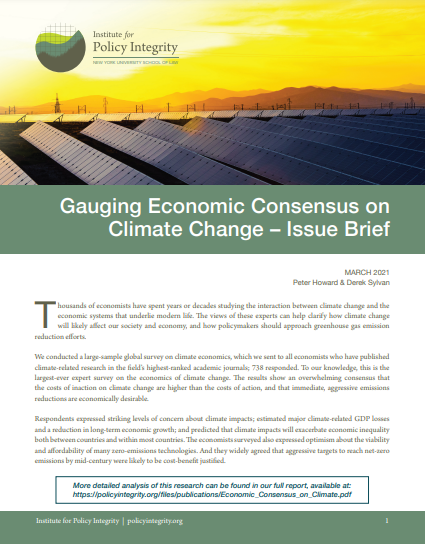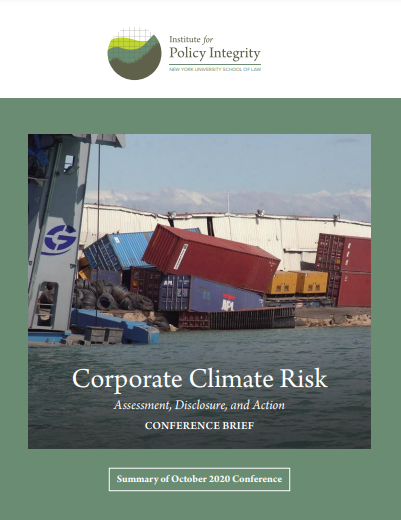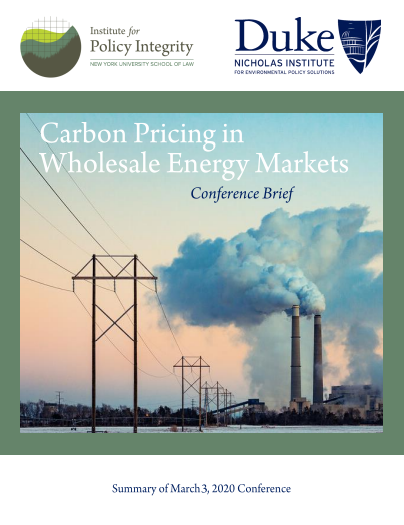-
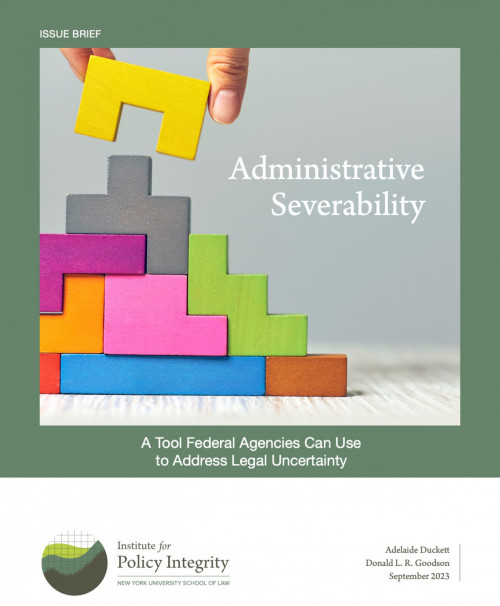
Administrative Severability
A Tool Federal Agencies Can Use to Address Legal Uncertainty
Several recent developments in administrative law—namely the Supreme Court’s embrace of the major questions doctrine and decision to hear a case asking it to overrule or clarify Chevron deference—have left federal agencies uncertain about how regulations will fare in litigation. Agencies adapting to this uncertainty may want to pay closer attention to recent case law on administrative severability, which allows a court to sever the invalid portion of a rule while leaving the rest intact.
-
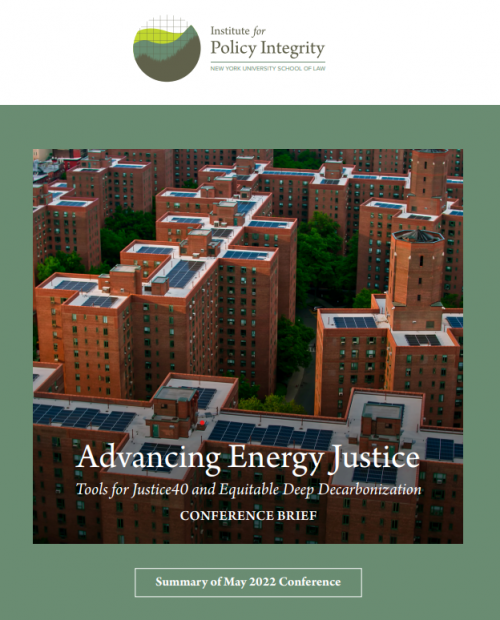
Advancing Energy Justice Conference Brief
Tools for Justice40 and Equitable Deep Decarbonization
This brief summarizes some of the major points of discussion from our May 2022 conference, “Advancing Energy Justice: Tools for Justice40 and Equitable Deep Decarbonization.” The event brought together federal agency staff working to implement Justice40 with researchers to discuss how academic research can be more responsive to communities’ needs. This brief summarizes the varied views expressed by conference participants and is not intended to be a consensus or recommendation document.
-
Gauging Economic Consensus on Climate Change – Issue Brief
We conducted a large-sample global survey on climate economics, which we sent to all economists who have published climate-related research in the field’s highest-ranked academic journals; 738 responded. To our knowledge, this is the largest-ever expert survey on the economics of climate change. The results show an overwhelming consensus that the costs of inaction on climate change are higher than the costs of action, and that immediate, aggressive emissions reductions are economically desirable.
This Issue Brief highlights key takeaways from the survey. A more detailed report is available here.
-
Corporate Climate Risk: Assessment, Disclosure, and Action
Conference Brief
On October 2, 2020, the Institute for Policy Integrity and the Volatility and Risk Institute at NYU Stern School of Business convened a conference bringing together investors, companies, researchers, and regulators to discuss climate-related financial risks and identify opportunities to better assess, report, and act on them. This brief summarizes some of the major points of discussion from the conference, which featured different perspectives on various policy, economic, and legal issues.
-
Carbon Pricing in Wholesale Energy Markets
Conference Brief
Policy Integrity and the Nicholas Institute for Environmental Policy Solutions at Duke University convened a conference on March 3, 2020, to discuss current, and potential future, approaches to carbon pricing in wholesale markets. This brief highlights some of the major points of discussion and suggests open questions for future study.
Viewing all publications in Issue Briefs

